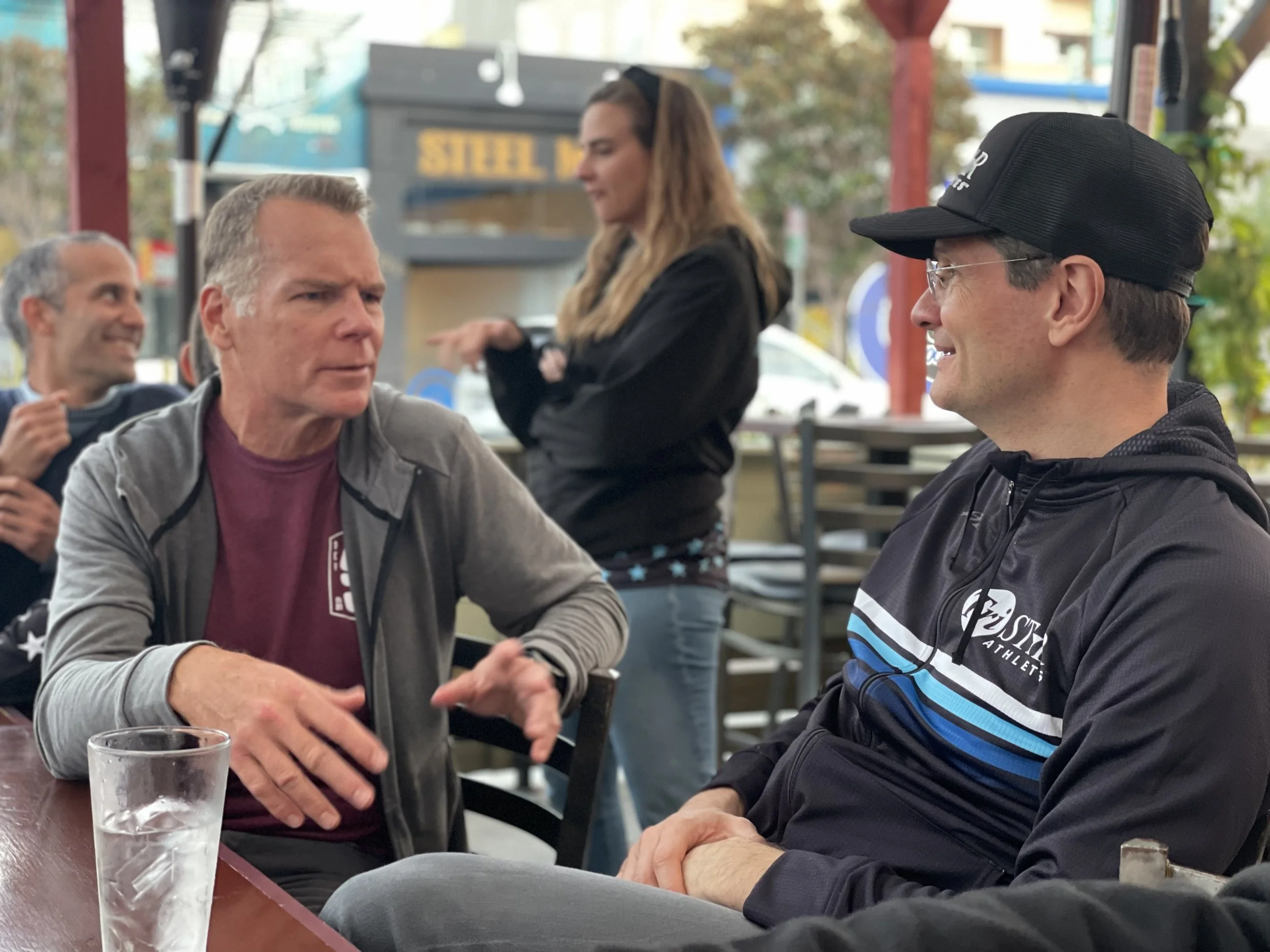Leaning out and weight loss 101
Whether it is personal satisfaction, the absolute health benefits or for performance, leaning out and losing weight has many positive aspects for us as human beings.
It is not to say this is by any means “easy”, however in our coaching experience there are key drivers that make this goal within your reach. Our coaches have put together this intro piece to help you understand the drivers, approach and sustainability to leaning out and losing weight.
The hardest part about leaning out and losing weight? It might be just starting the conversation.
The psychology
-
● We all have the ability as humans to flex our free will and it is what makes us uniquely human! It is also our downfall in that we can self select the destructive food behaviors that contribute to unnecessary weight gain and poor health.
● Challenge your conventional wisdom about what you are eating and why you are eating it. Create new behaviors based on your goals of who and what you want to be!
● Work with a team, coaches and friends to stay motivated. Positive peer pressure can be a good thing.
-
● We all have our own motivations when it comes to leaning out and losing weight. Make sure that these motivations tie into your short and long term goals.
● Doing something for someone or something else; when you work towards a goal larger than yourself it is easier to accomplish. When you set the goal of leaning out or losing weight, attach it to a life event, activity or challenge that motivates you.
● Detach yourself from emotional eating; In many instances we can fall prey to foods that comfort for life events that are unrelated to our nutritional needs. Ask yourself if you need this food for comfort, energy, or health. Find other coping mechanisms in friends, coaches, and support groups who can create a positive feedback loop.
-
● Make sure that the nutritional strategy you select is sustainable. Diets that are heavily restricted tend to fail over time. Give yourself ample time to lose weight and don't deprive the body of needed energy.
● 30 days; It takes 30 days to make something a habit that is more easily repeatable. Set a goal of committing to a realistic nutrition plan for at least 60 days.
● Target < 1lb per week and closer to a .5lb per week of weight loss. Often times optimizing the diet will yield better body composition at first without weight loss and then over time an improvement in actual weight.
Nutrition
-
● The most minimally processed foods from organic sources; Select foods that nourish your body and support your lifestyle. Examples; Fresh fruits and veggies (cant' go wrong there ever!) Lean proteins, legumes, slow burning carbs, and a low to modest good fats diet.
● What to avoid? Sugar, saturated fatty foods, and especially saturated fat foods with high sugar. This can cause an increase in the insulin demand of the body and shut off our bodies natural ability to burn our visceral fat. Limit red meat which has higher amounts of saturated fats. (< 2X per week)
● Water and fiber; Water helps us with digestion, satiety and bodily recovery. We are in fact 80% water! Make sure you are taking in enough daily water (especially before and during meals) to keep on track. Fiber is also key to a healthy digestion and diet. It provides fullness and satiety and is critical to any leaning out and weight loss strategy.
-
● Energy dense vs not? Not all food types are created equal; For instance, 1 tbsp (16g) of almond butter may have up to 100 calories vs a large banana! (Its easy to eat way more than one scoop of almond butter vs more than one banana! 🍌
● Watch any additives; Todays foods, especially packaged ones contain added salt, sugar and fat to enhance taste. Avoid any processed foods that contain these types of additives or preservatives.
● Go organic; it can be more expensive however organic foods have less or no chemical fertilizers and overall are better for our environment. The food is often fresher because it does not last as long.
Lifestyle
-
● The total amount of stress in your life can greatly impact your cortisol levels, the hormone responsible for retaining fat stores.
● Everyone has stress! It is ever present ; ) and we all need outlets here.
● Long term stress not only contributes to weight gain but also a host of other long term illnesses.
-
● Being active is the best way to lower your stress, burn calories and overall feel good.
● Does it have to be hard? No! In fact most of the fat burning zones occur at a rate of perceived effort of < = 4 on a scale from 1-10 which is quite easy and sustainable.
● Measuring intensity; You should use not only rate of perceived effort but also heart rate to make sure you are in the correct fat burning zones.
-
● Travel; If you travel a lot for work, try to make time before and after for your setup and breakdown of foods you might need and packing active wear for the trip.
● The body responds to consistency; You will need to make sure your strategy is repeatable if the body is going to unlock fat stores. Adjust your goals and life to fit this paradigm. Block out time on your calendar to make sure you have the time to hit your goals vs the idea of "I can get to it later". ...health and fitness waits for no one!
● Intensity; If the stimulus of your activity is too hard, you won't necessarily hit your goals. The adage, no pain no gain does not apply here and is an old mantra that does not work. You need to train the bodies physiology through proper plans with our coaching tools and methods. 🙌🏻. Something hard and of this nature will not allow you to be consistent and hit your goals.
Pulling it all together: Intro to Tristar Athletes Nutrition: 7 top tips and tools to start leaning out and losing weight
-
Being active is a great way to introduce a higher level of insulin sensitivity. This sensitivity will lower your total insulin demands, aiding in total reductions in body fat. When timed with an appropriate meal plan and diet it can be a recipe for success!
-
Higher levels of stress can create insulin resistance via cortisol and require more insulin for your total daily dose. Meditation and activity are some of the best ways to combat stress levels. Sleep amount and quality also play a role in stress levels and weight management. Make sure you are sleeping enough each night and that it is quality in nature.
-
In your diet watch the total amounts of calories coming from fats which can cause weight gain and insulin resistance.
-
Drop these two from the diet to see improvements in body composition. Alcohol has empty calories which become fat and sugar will also cause swings in blood sugar which can effect energy levels and body composition.
-
Watch your total daily intake of both fat and carbohydrates. No one wins on a high fat high carb diet! (Total fat calories per day should be no more than 30% when on an active regimen. When less active this may be higher but still limited)
-
Use the my Fitness Pal app to dial in your nutrition and make sure you are not eating too much or too little. You don't need to track everything every day but rather pick two or three days in a week to observe. One more active day and one more sedentary day.
-
Be patient and consistent in your approach. There is no hack or shortcut to making these lifestyle changes and decisions. Adopting these strategies will lead toward long term health and we think happiness!


